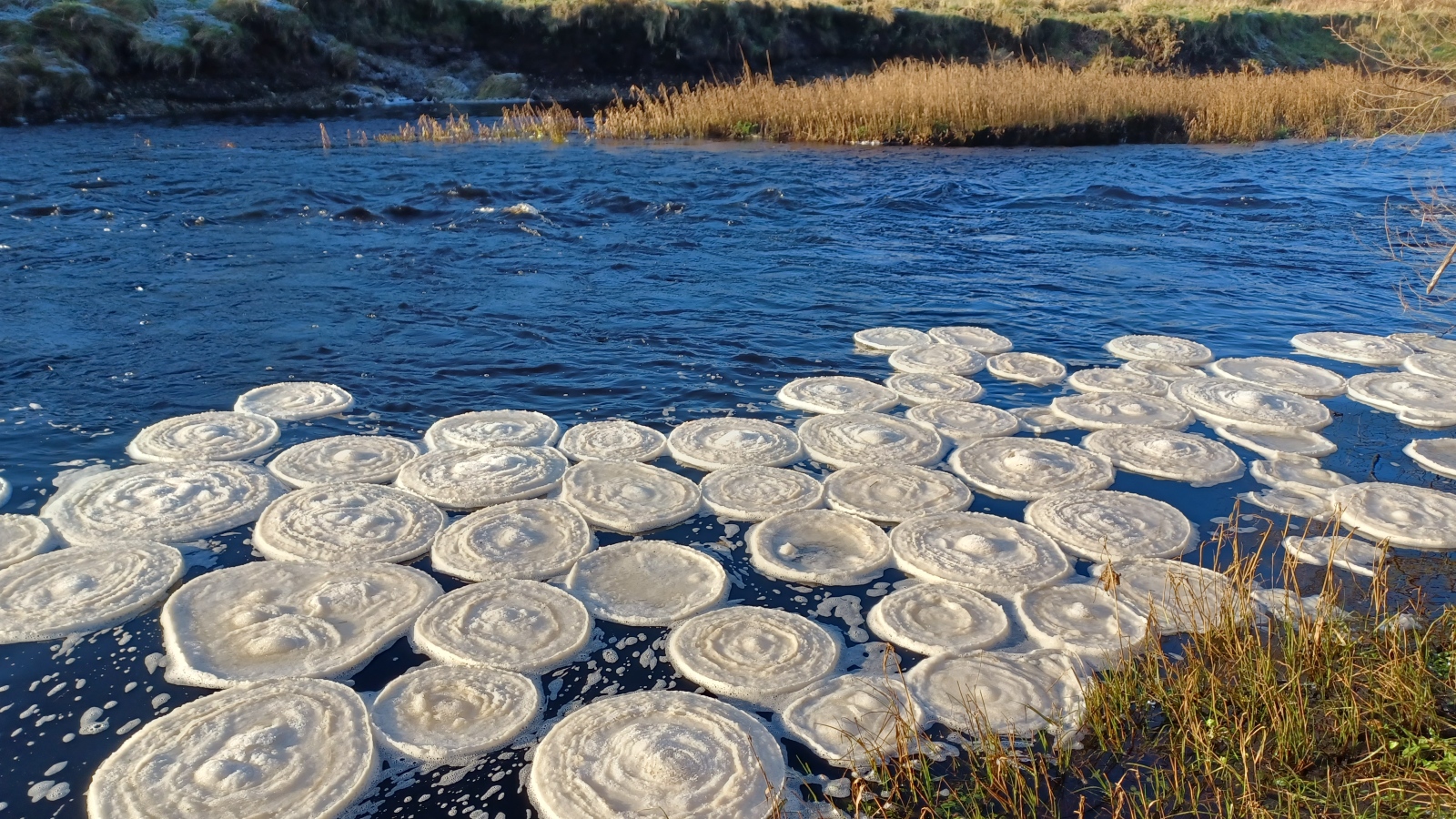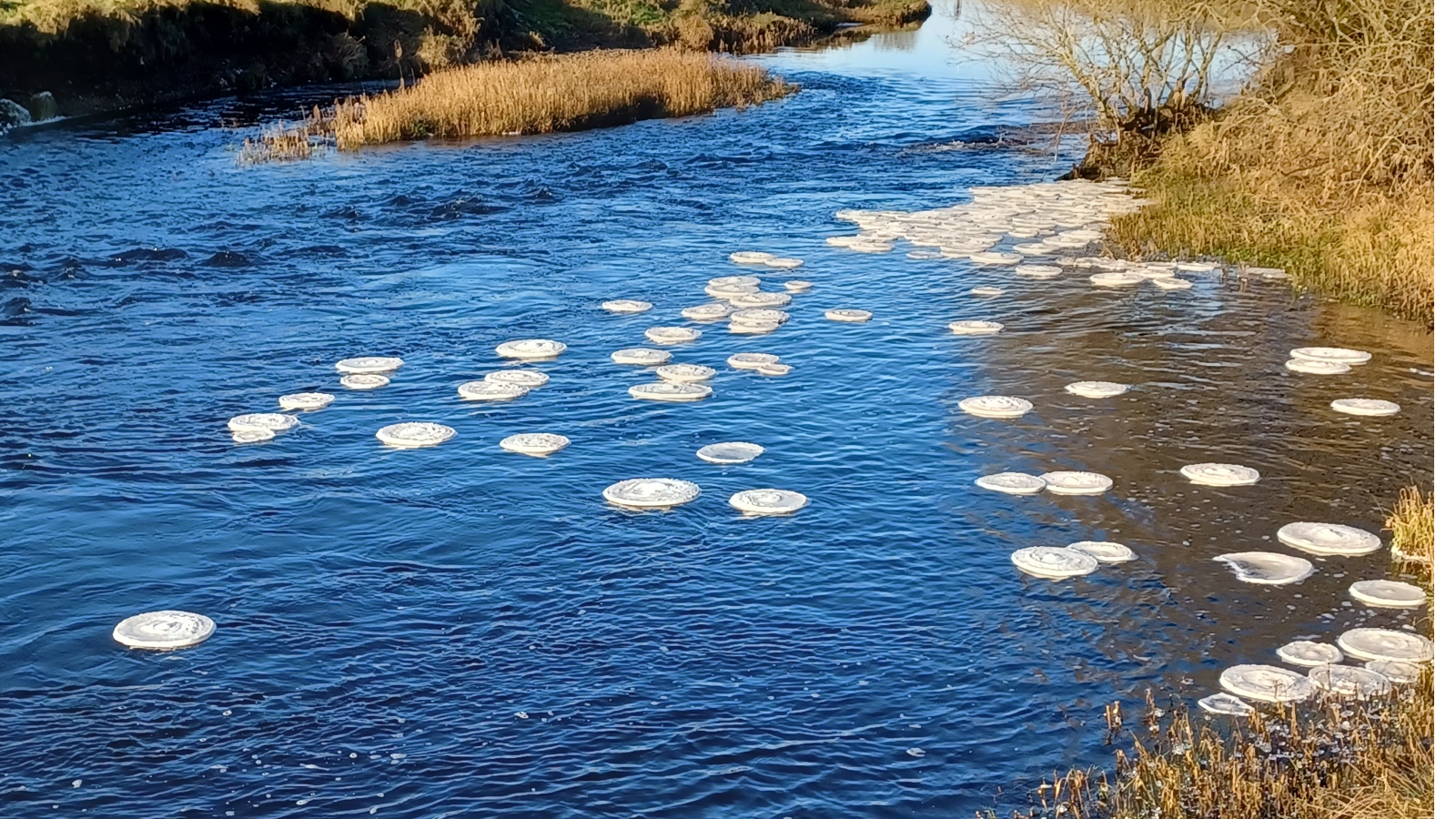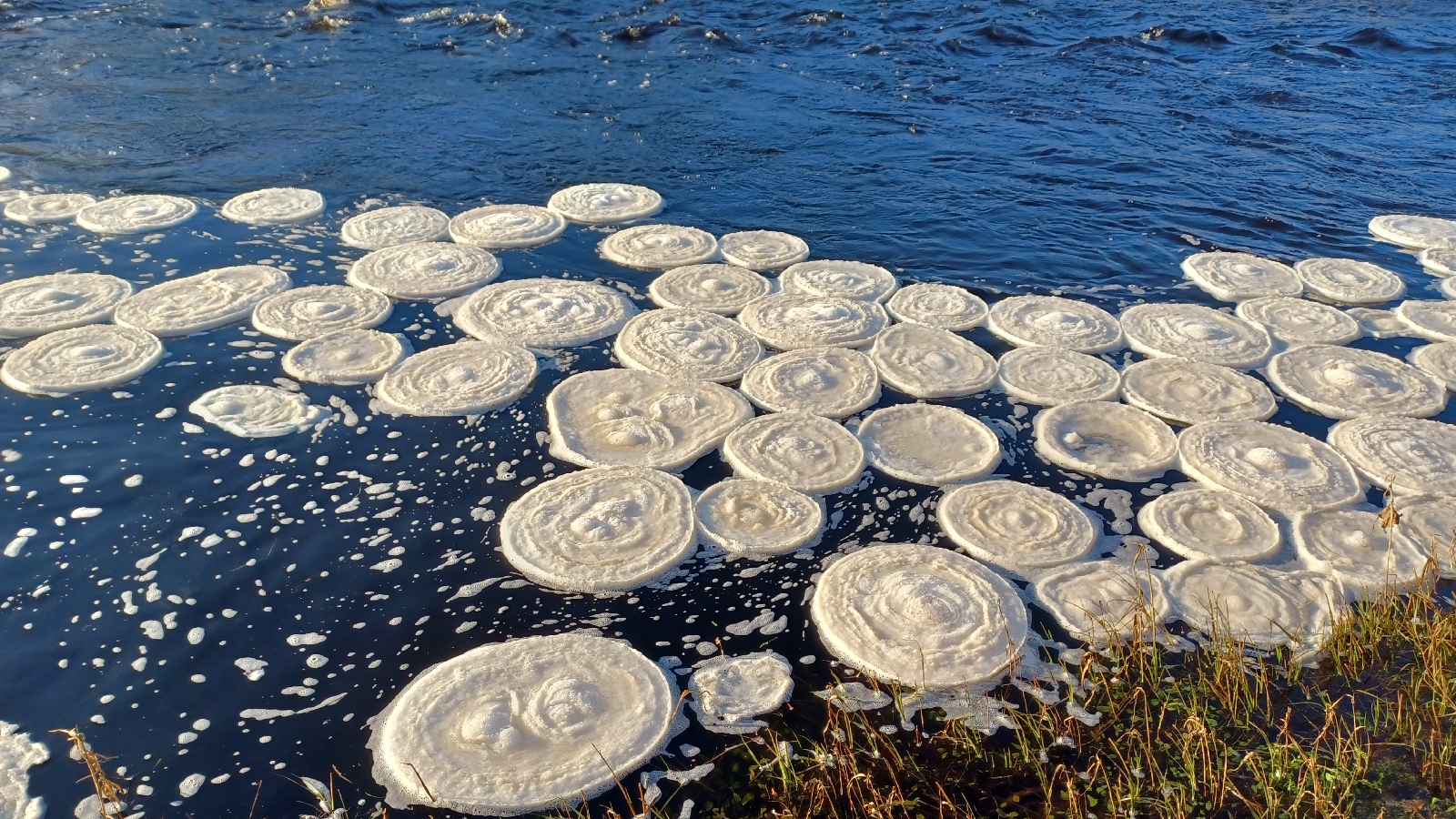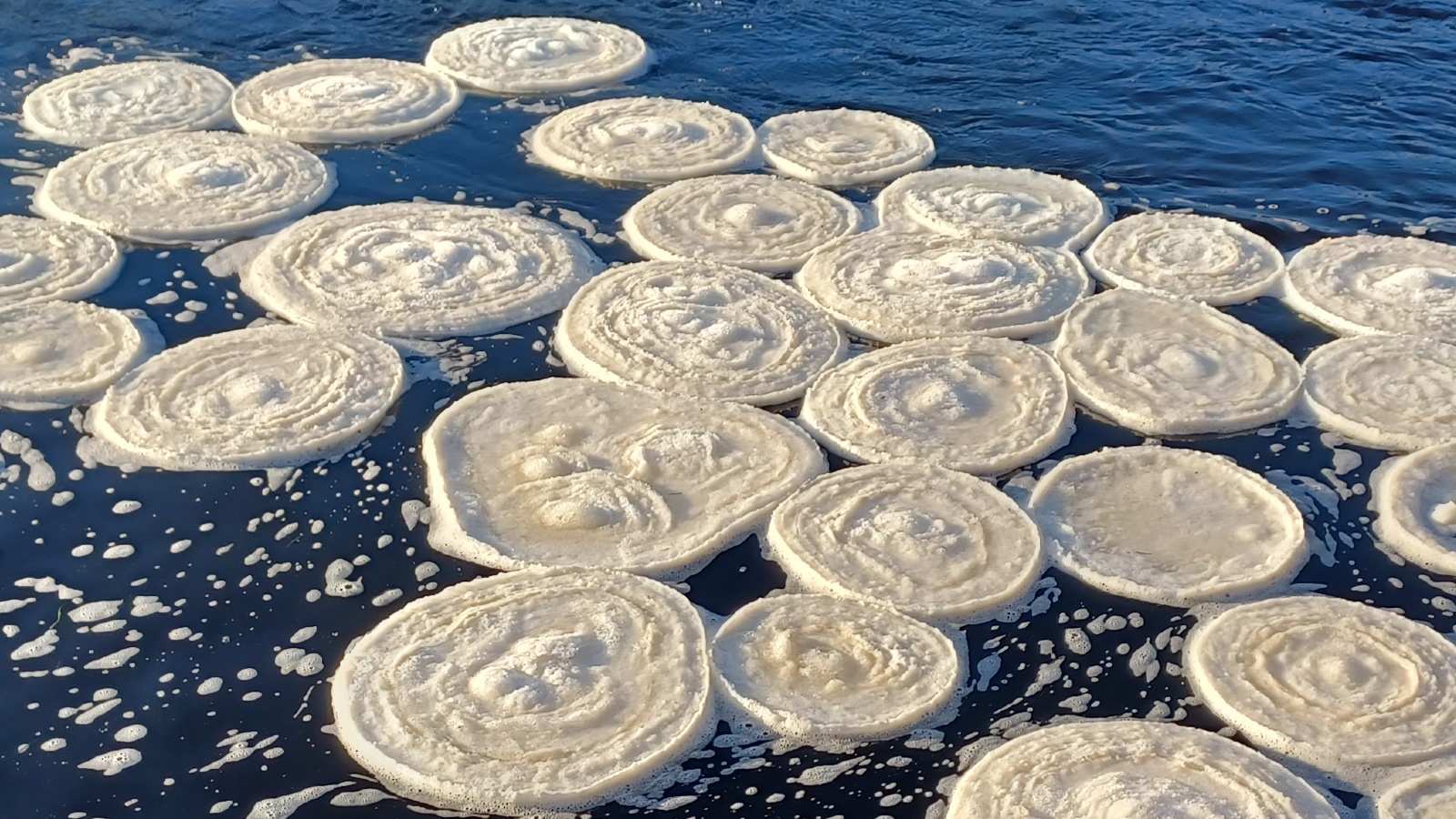Stunning 'ice pancakes' swirl on the surface of Scottish river
Wildlife experts recently captured footage of frozen discs, known as "ice pancakes," on the surface of a river in Scotland after an unusual cold snap.
Get the world’s most fascinating discoveries delivered straight to your inbox.
You are now subscribed
Your newsletter sign-up was successful
Want to add more newsletters?

Delivered Daily
Daily Newsletter
Sign up for the latest discoveries, groundbreaking research and fascinating breakthroughs that impact you and the wider world direct to your inbox.

Once a week
Life's Little Mysteries
Feed your curiosity with an exclusive mystery every week, solved with science and delivered direct to your inbox before it's seen anywhere else.

Once a week
How It Works
Sign up to our free science & technology newsletter for your weekly fix of fascinating articles, quick quizzes, amazing images, and more

Delivered daily
Space.com Newsletter
Breaking space news, the latest updates on rocket launches, skywatching events and more!

Once a month
Watch This Space
Sign up to our monthly entertainment newsletter to keep up with all our coverage of the latest sci-fi and space movies, tv shows, games and books.

Once a week
Night Sky This Week
Discover this week's must-see night sky events, moon phases, and stunning astrophotos. Sign up for our skywatching newsletter and explore the universe with us!
Join the club
Get full access to premium articles, exclusive features and a growing list of member rewards.
Dozens of eerily perfect circles of slushy ice, known as "ice pancakes," have been floating on the surface of a Scottish river after temperatures in the U.K. unexpectedly plummeted.
Callum Sinclair, project manager for the Scottish Invasive Species Initiative (SISI), spotted the stunning circular sheets of ice Dec. 9 on the River Bladnoch in Wigtownshire, Scotland. Pictures of the peculiar pancakes taken by Sinclair were shared on the SISI Twitter page on Dec. 13, along with a short video of the icy discs bumping into one another and being washed downstream by fast-moving currents.
"I've seen ice pancakes occasionally before," Sinclair told Live Science in an email. "But these were particularly interesting" because of their perfect shape, he added.
Photos shared in the comments of the SISI post also revealed that ice pancakes have formed on the River Kelvin near Glasgow and the River Esk in the Lake District in northwest England in recent days.
Related: What are the different types of ice formations found on Earth?
Ice pancakes are relatively rare structures that tend to form in very cold oceans, lakes and rivers, according to the U.K. Met Office.
On rivers, the pancakes form when frozen foam on the water's surface gets trapped in a spiraling current known as an eddy. As other bits of frozen foam and ice hit these forming discs, the debris joins onto the nascent pancakes, which causes them to grow, according to the Met Office.
Get the world’s most fascinating discoveries delivered straight to your inbox.



On open water, the pancakes form when surface ice gets broken up and rounded out as currents and waves cause the icy chunks to bash into one another, according to the Met Office.
Ice pancakes can grow to between 8 and 79 inches (20 and 200 centimeters) across, and although they look like solid discs, they are often quite slushy and easily break apart when lifted up, according to the Met Office.
Although the icy discs dot the Great Lakes of North America and the oceans surrounding Antarctica, where temperatures often fall well below freezing, ice pancakes are much rarer in U.K. rivers.
However, an unusually cold snap, caused by an area of low pressure that got trapped by surrounding areas of high pressure over Russia and Greenland, has caused temperatures across the U.K. to fall below freezing for more than a week, according to the BBC.
The lowest temperature recorded during the cold snap so far was 0.8 degrees Fahrenheit (-17.3 degrees Celsius) in Aberdeenshire, Scotland on Dec. 12, according to the BBC.

Harry is a U.K.-based senior staff writer at Live Science. He studied marine biology at the University of Exeter before training to become a journalist. He covers a wide range of topics including space exploration, planetary science, space weather, climate change, animal behavior and paleontology. His recent work on the solar maximum won "best space submission" at the 2024 Aerospace Media Awards and was shortlisted in the "top scoop" category at the NCTJ Awards for Excellence in 2023. He also writes Live Science's weekly Earth from space series.
 Live Science Plus
Live Science Plus











